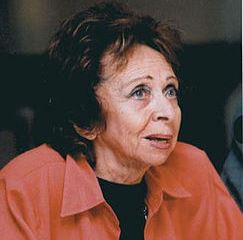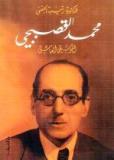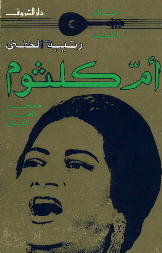El-Hefny was born in 1931 to an Egyptian father, Mohamed Ahmed El-Hefny, who authored many books on music. Her mother was of German origins and her maternal grandmother was also a soprano. El-Hefny’s music education began at the Faculty of Music Education in Cairo.
She started playing the piano at the age of five and eventually reached the level of a concert pianist, yet she did not continue any further. She also studied the oud with the renowned composer Mohamed Al-Kasabgui, as well as the qanoun. Since the early years she equally cherished western classical music and Arab music; her life path gave her an opportunity to indulge her interest in both traditions with the same boundless dedication.
Following her studies in Egypt in the 1950s, she became rector at the Higher Institute of Arab Music in Cairo and was appointed dean of the same institution in 1962. By then El-Hefny’s operatic career was already flourishing.
In the 1950s, she had studied operatic singing for three years in Munich and was the first Egyptian opera singer to return to Egypt with a diploma in singing.
Equally interested in Egypt’s musical heritage, she did her thesis on a folk theme, “The Wedding Songs of Fayoum” at the Berlin School of Music. Following that, El-Hefny was offered the post of dean of the Higher Institute of Arab Music in Cairo, and she had to split her time between international commitments, performing and working in the institute in Egypt.
Throughout her career, she established a number of ensembles, many of which operate until today.
In 1961 El-Hefny performed Franz Lehár’s “The Merry Widow,” at the Khedivial Opera House in Cairo. Entry was an accessible six piasters, for the first time Egyptian’s of all classes could enjoy the opera together. This helped to propel El-Hefny into the beloved national music icon she is today. A year later, she became the dean of the Higher Institute of Arab Music in Cairo.
Around the same time she also ounded the first children’s choir in Egypt and later the Cairo Opera Children’s Choir. She also established the Umm Kolthoum Ensemble for Arab Music, the Religious Songs Ensemble and the National Arab Music Ensemble. In 1988, on the opening of the new Cairo Opera House, El-Hefny became its chairperson (president of the National Cultural Centre), a post that she held until 1990.
For over two decades, she hosted radio and television programmes dedicated to Arab music. For many years, until 2010, she was the supervisor of the Talents Development Centre operating under the Cairo Opera House. In the late 1990s she became the president of the Arab Society for Music, an organisation associated with the Arab League, a position she was repeatedly elected to by the voting committee every four years.






